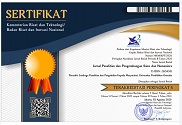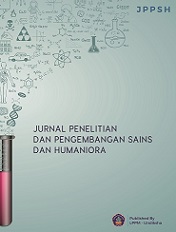PENILIKAN KESALAHAN BERBAHASA INDONESIA YANG BAIK DAN BENAR DALAM KONTEKS SOSIAL-MASYARAKAT DI RUANG PUBLIK
DOI:
https://doi.org/10.23887/jppsh.v3i1.17366Keywords:
analysis, Indonesian language errors, social context, Public areaAbstract
This research is a qualitative descriptive study. Data and data sources used in this study are in the form of pictures or photographs in the field. One characteristic of qualitative research is the data collected in the form of words, images, and not numbers. The researcher also uses field notes in the form of observation notes and other sources. The data needed to answer the problems that want to be solved are (1) data on the types of errors in Indonesian that are good and correct in the public space, (2) data regarding social-community responses to errors in Indonesian that are good and correct in public space. Data collection techniques used in this study are observation and documentation. The results of the research obtained are (1) errors in Indonesian that are good and correct in the public space are divided into three parts, namely spelling mistakes, diction, and structure, (2) the most dominant use of Indonesian language is diction errors or word choices, ( 3) errors in public spaces contained in posters or nameplate / institutions / stores, contained in newspapers or mass media, and contained in social media, (3) responses in the social-community environment are indifferent and do not know that there are errors in Indonesian that are good and correct in the public space.
Downloads
Published
Issue
Section
License
Authors who publish with the Jurnal Penelitian dan Pengembangan Sains dan Humaniora agree to the following terms:
- Authors retain copyright and grant the journal the right of first publication with the work simultaneously licensed under a Creative Commons Attribution License (CC BY-SA 4.0) that allows others to share the work with an acknowledgment of the work's authorship and initial publication in this journal.
- Authors are able to enter into separate, additional contractual arrangements for the non-exclusive distribution of the journal's published version of the work (e.g., post it to an institutional repository or publish it in a book), with an acknowledgment of its initial publication in this journal.
- Authors are permitted and encouraged to post their work online (e.g., in institutional repositories or on their website) prior to and during the submission process, as it can lead to productive exchanges, as well as earlier and greater citation of published work. (See The Effect of Open Access)









